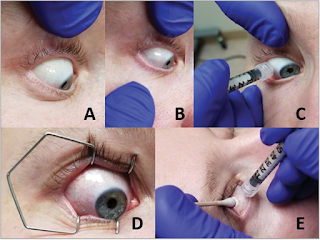What If My Cornea Is Too Thin for LASIK?
When considering LASIK surgery in Delhi to correct vision problems, one of the key factors an eye specialist checks is the thickness of your cornea. But what happens if your cornea is too thin for LASIK? Don’t worry; there are other effective procedures to help you achieve a better vision. Understanding Cornea Layers Thickness The cornea is a clear, dome-shaped surface covering the front of the eye, which is important in focusing your vision. Your cornea must have sufficient thickness for LASIK surgery to be safe and effective. If it's too thin, the risk of complications increases. Thankfully, advancements in medical technology mean that having a thin cornea doesn't mean you have to give up on better vision. Alternative Procedures to LASIK Surgery If LASIK isn't suitable due to your cornea's thickness , several alternative procedures can correct refractive errors: 1. Implantable Collamer Lenses (ICL) ICL involves inserting a lens between the iris and the eye's n...
